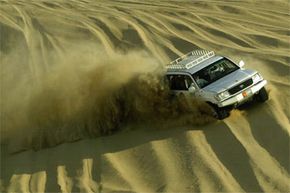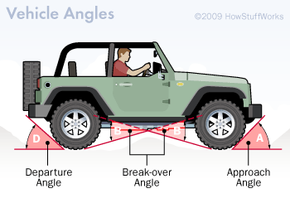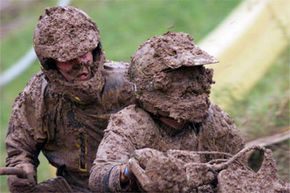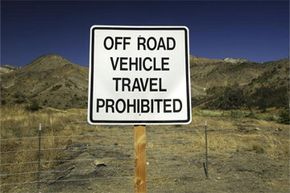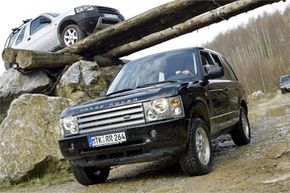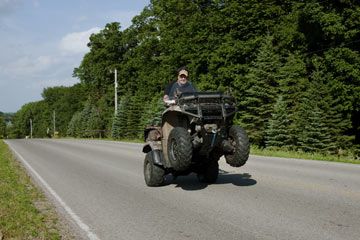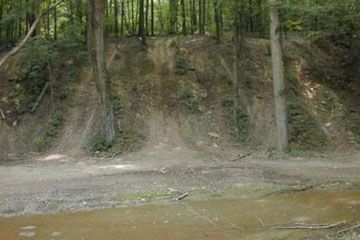For most people, a bumpy, muddy, rocky road would be a driving nightmare. But for some, the rougher the road the better. In fact, for a group of adventurers known as off-roaders, no road is best of all.
Off-roading is a term used to describe driving on unpaved ground. This surface can be almost anything other than typical smooth pavement, including fields, riverbeds, muddy bogs, sand dunes, beaches, mountainsides, gravel, boulders and even roads that have fallen into disrepair. If it's not paved (or paved well), it's fair game for off-roaders.
Advertisement
Some off-roaders enjoy the natural scenery, while others love the technical challenge that driving on unpaved ground presents. Whatever type of off-roading you're into, it can be a great pastime as long as you know what you're doing.
The natural terrain is uneven and can be unpredictable, so it's important that you have the proper equipment for off-road driving. While technically you can go off-roading in any vehicle, trucks, SUVs and other high-riding vehicles are best suited to handle the bumps and bruises found off the beaten path. You might also want to use four-wheelers, dirt bikes, dune buggies or all-terrain vehicles (ATVs), which are specially designed for off-road driving. If you're taking up off-roading as a hobby, a low-riding compact car probably isn't going to cut it.
Depending on what type of off-roading you're into, the type of vehicle -- and vehicle modifications -- you will need can vary. For instance, the same tires you use to drive over steep sand dunes probably aren't going to be great for traversing boulders.
One of the best things about off-roading is that you get to adopt a new vocabulary. For example, are you into mudding, rock crawling, dune bashing or green laning? Do you know the break-over angle on your car? Do you know how to pick a good line? Find out more about these terms and what they're all about in the next sections.
Advertisement
